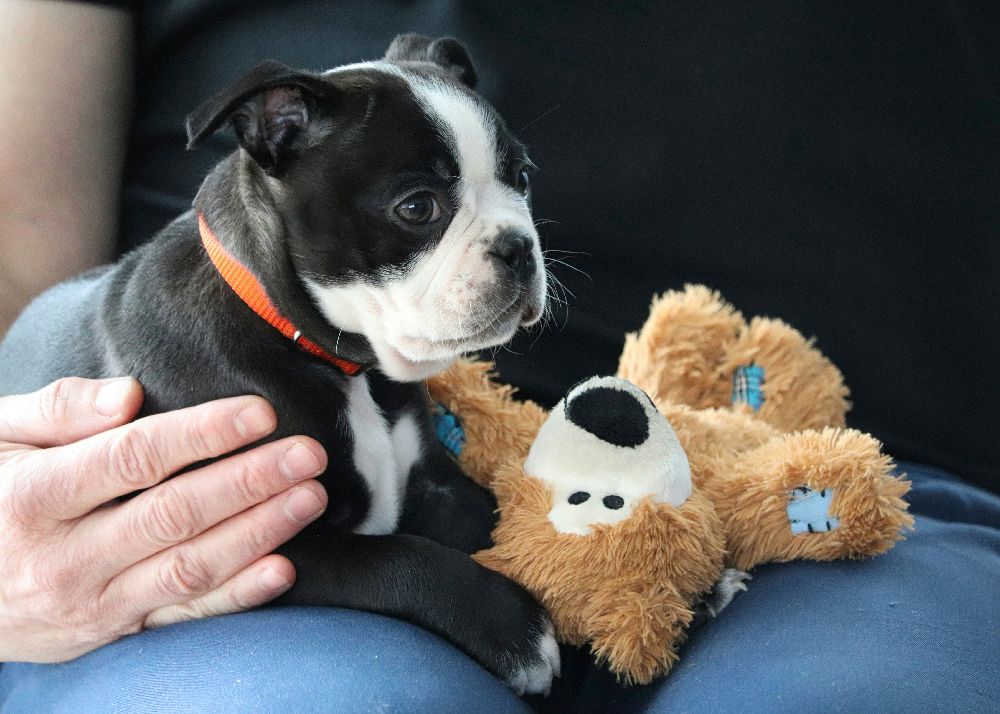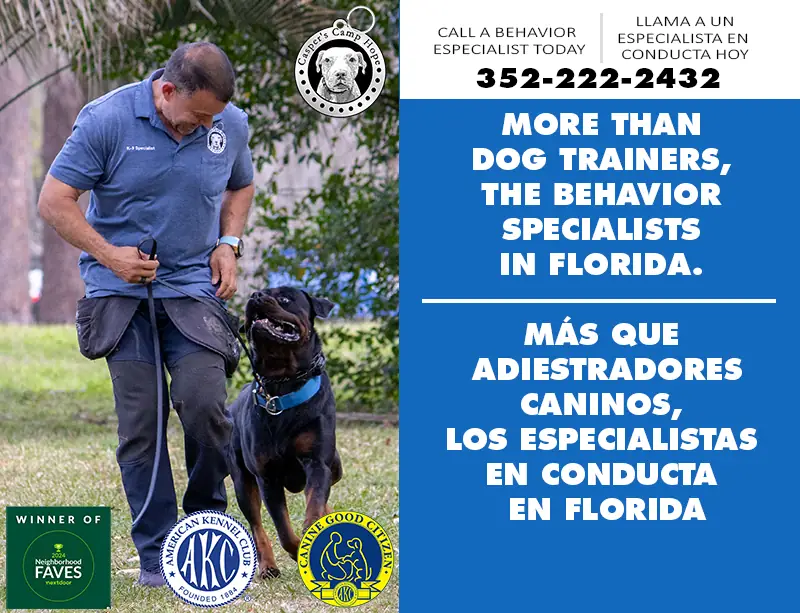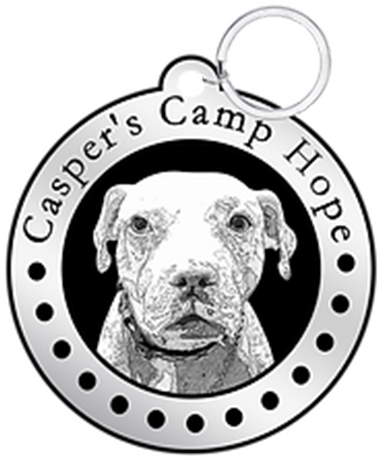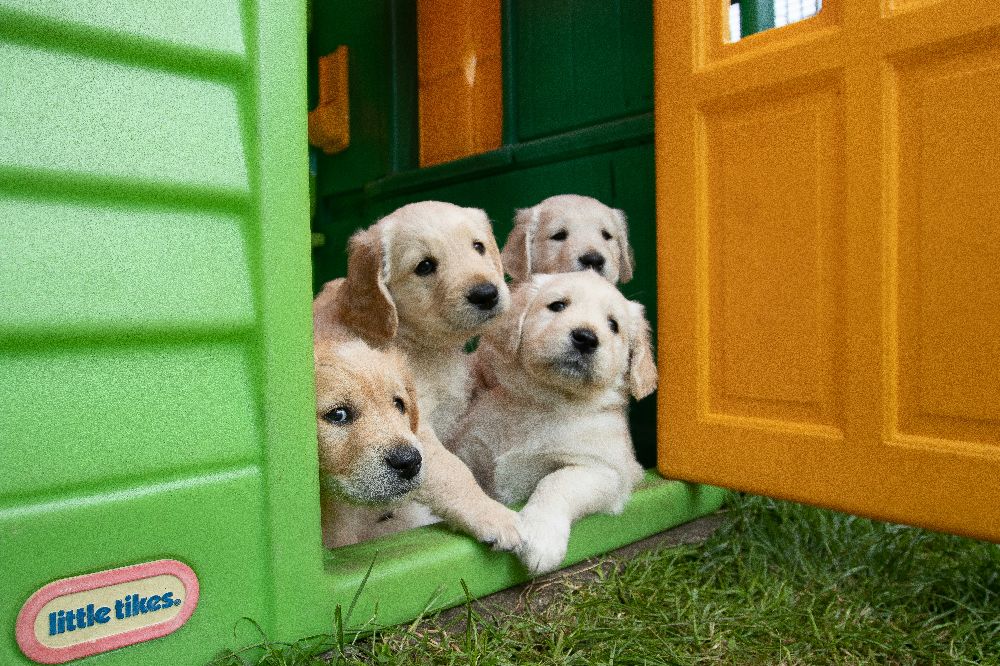Choosing the right dog daycare can truly make a difference in your furry friend's happiness, behavior, and overall well-being. In Gainesville, you'll find a variety of options, from simple supervision to specialized programs designed to tackle issues like aggression, anxiety, and leash manners. This guide breaks down eight key areas to consider: safety and supervision, health and vaccinations, integrated training, pricing and service packages, how to choose the right fit, special offerings for veterans and first responders, enrichment activities, and social mentoring. By exploring these points, you'll feel confident picking a Gainesville dog daycare that supports your dog's health, behavioral goals, and your search for affordable dog boarding in Gainesville, FL.
Ensuring Top-Notch Safety and Supervision at Gainesville Dog Daycare
To guarantee a safe and stress-free experience for every dog, a Gainesville dog daycare should feature certified staff, well-organized play groups, and a facility designed to prevent any escapes.
Before you get into the details, make sure the daycare checks these three crucial boxes: staff expertise, how they manage play groups, and the safety features of their facility. Each of these elements works together to prevent accidents and encourage positive interactions.
What Qualifications and Certifications Should Daycare Staff Have?
Daycare team members should be certified in pet CPR, canine first aid, and behavior assessment, so they're ready to handle emergencies and manage dog interactions effectively.
- Staff who are certified through recognized programs like PetTech or the Red Cross show they're prepared for health emergencies.
- On-site behavior specialists can read subtle canine body language to de-escalate tension before play gets too intense.
- Continuous training in positive reinforcement methods ensures safety and helps dogs build confidence.
These qualifications mean quick responses to injuries and expert handling of dogs showing signs of stress, setting the stage for smooth, organized group play.
How Are Dogs Supervised and Grouped for Safe Play?
Effective grouping and supervision rely on temperament testing, maintaining consistent staff-to-dog ratios, and dynamically adjusting play groups to minimize conflicts and maximize fun.
Before any dog joins regular play sessions, they undergo a temperament test to assess their energy level, how well they socialize, and any tendencies to guard resources. Staff maintain a ratio of no more than 1 staff member to 10 dogs outdoors and 1:8 indoors, ensuring attentive supervision at all times.
What Exactly Is a Temperament Test and Why Is It So Important?
A temperament test is designed to evaluate a dog's play style, their tolerance for stress, and their social responses, which helps determine the safest play groups for them.
This initial screening typically involves introductions on leash to check for reactivity, followed by off-leash play sessions to match energy levels, and exercises involving sharing toys or treats. By placing dogs with similar temperaments together, daycares can prevent bullying, reduce the risk of injuries, and make playtime more enjoyable for everyone.
These careful procedures create a reliable safety net that keeps the peace and helps dogs build positive social connections.
What Facility Features Contribute to a Safe Daycare Environment?
A secure dog daycare needs features like sturdy perimeter fencing, double-gated entryways, separate indoor and outdoor areas, and clear emergency plans to keep dogs safe and prevent escapes.
- Fencing that's at least six feet high helps prevent dogs from jumping over and escaping.
- Double gates in the lobby area stop dogs from making a quick dash out when new dogs arrive or depart.
- Separate indoor spaces with non-slip flooring allow for climate control and close monitoring of any dog needing medical attention.
- Clearly marked emergency exits and regular staff drills ensure the team is prepared for any evacuation scenario.
These structural elements and established procedures work hand-in-hand to create a dependable safety net that supports every supervised play session.
Essential Health and Vaccination Requirements for Gainesville Dog Daycare

Meeting health and vaccination requirements is crucial for preventing the spread of diseases and maintaining high hygiene standards that protect all dogs at the daycare.
A thorough policy should cover required immunizations, cleaning routines, and spay/neuter guidelines to help prevent common illnesses and ensure a healthy environment for all.
Which Vaccinations Are Mandatory for Daycare Admission?
Daycares typically require up-to-date Rabies, Bordetella (for kennel cough), and DHPP (Distemper, Hepatitis, Parvo, Parainfluenza) vaccinations to protect the canine community.
| Vaccine | What It Protects Against | How Often It's Needed |
|---|---|---|
| Rabies | Prevents a deadly viral brain infection | Every 1–3 years, as required by Florida law |
| Bordetella | Helps prevent outbreaks of kennel cough | Annually or every six months |
| DHPP | Protects against several major viral diseases | Initial series followed by boosters |
Keeping these core vaccines current helps ward off respiratory and gastrointestinal infections, contributing to the overall health of dogs at daycare.
What's the Recommended Vaccination Schedule for Puppies and Adult Dogs?
Puppies typically start their DHPP and Bordetella vaccinations between 6–8 weeks of age, with boosters every 3–4 weeks until they are 16–20 weeks old, after which they move to annual boosters. Adult dogs need annual boosters for DHPP and Bordetella, and their Rabies vaccine is given on a 1- or 3-year cycle depending on the specific vaccine used.
Following this schedule ensures that dogs have developed sufficient immunity to safely join group play.
Worldwide Vaccination Guidelines for Dogs and Cats
The World Small Animal Veterinary Association (WSAVA) offers comprehensive guidelines for dog vaccinations, classifying them as either core or non-core. Their recommendations state that core vaccines, such as those for canine distemper virus, canine adenovirus, and canine parvovirus type 2, should not be administered more often than every three years after the initial puppy series and the booster given at 12 months of age, due to their long-lasting immunity.
This citation supports the vaccination schedules and frequencies mentioned in the article, particularly concerning core vaccines and the reasoning behind them.
How Do Daycares Handle Illness Prevention and Hygiene?
- Surfaces, toys, and floors that dogs frequently touch are disinfected multiple times a day.
- Staff conduct visual checks when dogs are dropped off to spot any signs of coughing, sneezing, or unusual tiredness.
- Dogs older than six months are required to be spayed or neutered to help reduce behaviors like wandering and aggression.
These practices combine preventative measures with early detection, creating a clean environment where dogs can truly thrive.
How Integrated Dog Training Elevates Gainesville Dog Daycare Services

Combining structured training with daycare activities can significantly boost behavioral progress by reinforcing commands, social skills, and confidence during supervised interactions.
Integrated training programs focus on obedience, leash manners, and overcoming fear responses, leading to skills that dogs can use both at daycare and at home.
What Training Programs Work Best with Daycare for Behavioral Improvement?
- Basic obedience commands like "sit," "stay," and "come" help reduce risks when dogs are off-leash at daycare.
- Training for loose-leash walking promotes calm arrivals and departures from the facility.
- Desensitization techniques, like firework conditioning, help ease anxiety triggered by loud noises during outdoor play.
Incorporating these programs into daily daycare routines speeds up progress by allowing dogs to practice learned behaviors in a distracting environment.
How Does Daycare Help Dogs with Behavioral Challenges?
Daycare offers structured exposure therapy for dogs dealing with aggression, separation anxiety, or reactivity, all under professional supervision to help them build resilience.
Supervised socialization with experienced "mentor" dogs, carefully managed introductions to new dogs, and gradual distance exercises help anxious dogs become more comfortable in new settings. Professional trainers adapt their methods based on each dog's specific needs, fostering trust and positive associations.
This personalized approach can transform challenging behaviors into confident social skills.
Why Is Early Puppy Socialization So Important in Daycare Settings?
Introducing puppies to daycare early on helps them develop healthy play habits, learn bite inhibition, and build coping mechanisms, which are essential for lifelong confidence.
Puppies can interact safely in a controlled environment, following a vaccination schedule, and experiencing various textures, sounds, and canine social cues. Positive experiences during the critical 3–14 week developmental window can prevent fearfulness and hinder stunted social growth.
The Impact of Early Socialization on Adult Dog Behavior
Research shows that proper socialization during a puppy's sensitive period (typically between 3 and 14 weeks of age) has a significant effect on their behavior as adults. Puppies that are exposed to a variety of environments, people, and other animals in a controlled manner are less likely to develop fear or aggression later in life and tend to be more sociable.
This research directly supports the article's emphasis on the importance of early puppy socialization in daycare settings for fostering healthy play patterns and lifelong confidence.
Well-socialized puppies grow into adaptable adult dogs that can confidently navigate various family and public situations.
Understanding Pricing and Service Options for Dog Daycare and Boarding in Gainesville
Daycare and boarding facilities in Gainesville offer daily rates, multi-session packages, and customized bundles to fit different budgets and lifestyles.
Getting a clear picture of cost structures and available add-on services will help you find the best value for affordable dog boarding in Gainesville, FL.
What Are the Typical Costs for Dog Daycare and Boarding in Gainesville, FL?
Daycare services usually range from $30 to $45 per day, while overnight boarding typically costs between $50 and $75 per night. These prices can vary based on group size, amenities offered, and the expertise of the staff.
| Service | Standard Price | Typical Price Range |
|---|---|---|
| Full-Day Daycare | $30 per day | $30–$45 |
| Overnight Boarding | $60 per night | $50–$75 |
Discounts are often available for veterans, first responders, and households with multiple dogs.
How Do Extra Services Affect the Overall Price?
Add-on services like training sessions, one-on-one attention, grooming, and extended hours usually come with additional fees, typically ranging from $15 to $25 per service or hour.
Investing in integrated training or specialized one-on-one support can speed up behavioral improvements, while extended care options offer added convenience for busy owners.
What Package Deals and Discounts Are Commonly Offered?
Flexible packages, such as bundles of 10 daycare sessions or monthly boarding subscriptions, along with discounts for veterans and first responders (up to 10%), can lower the cost per session and reward customer loyalty.
Bundled packages often include perks like complimentary drop-in training sessions or priority booking during busy periods, offering greater value for committed clients.
How Do Trial Periods and Enrollment Work?
Most Gainesville daycares require a 3-hour trial session to assess a dog's temperament and compatibility before allowing full enrollment. This is usually accompanied by an application and proof of current vaccinations.
This screening process ensures that each dog can integrate smoothly into existing play groups, helping to maintain overall harmony and reduce stress for new arrivals.
How to Choose the Best Gainesville Dog Daycare for Your Pet
Selecting the perfect daycare involves asking the right questions, observing how they communicate, and checking their community reputation to ensure they're a good fit for your pet's needs.
By inquiring about safety procedures, transparency practices, and what other clients say, you can make informed decisions that align with your dog's health and behavioral objectives.
What Questions Should You Ask When Evaluating a Dog Daycare?
Prospective clients should ask about staff certifications, how training is incorporated, group-to-staff ratios, emergency plans, and their methods for assessing dog behavior before making a commitment.
- “What certifications do your staff hold?”
- “How do you incorporate obedience training into the daily routine?”
- “What is your maximum dog-to-staff ratio?”
These questions help reveal the daycare's operational standards and provide reassurance about their consistent care practices.
How Can You Verify Staff Credentials and Facility Standards?
Ask for proof of certifications, watch staff-led training demonstrations, tour the indoor and outdoor areas, and review any inspection reports from local authorities.
An on-site visit allows you to assess the facility's cleanliness, check if emergency equipment is readily visible, and observe staff interactions—all crucial indicators of a professionally managed environment.
How Important Are Transparency and Communication with Daycare Providers?
Daily written updates, photo sharing, and live webcam feeds build trust by keeping owners informed about their dog's activities, behavior, and overall well-being throughout the day.
Open-door policies and direct communication channels, such as text messaging or dedicated apps, strengthen the partnership between owners and providers, ensuring prompt feedback on any concerns.
What Role Do Testimonials and Community Reputation Play?
Real-life success stories, especially those highlighting significant behavior improvements or reductions in stress, validate a provider's expertise and strongly resonate with potential clients.
Members of local veteran and first responder communities often share recommendations, and positive word-of-mouth from these networks underscores a daycare's reliability and commitment to the community.
Specialized Programs at Casper’s Camp Hope for Veterans and First Responders
Casper’s Camp Hope offers tailored programs designed to support service members by training service and therapy dogs, and by providing exclusive discounted services for veterans and first responders.
These specialized offerings combine behavioral rehabilitation with mission-specific skill development to strengthen the bond between humans and their canine partners.
How Do These Programs Support Service and Therapy Dogs?
Clients who are veterans or first responders benefit from customized behavior modification plans, training sequences for specific tasks, and desensitization exercises that prepare dogs for real-world support roles.
Focused training modules include public access skills, recognizing PTSD triggers, and providing tactile comfort, all guided by certified behavior specialists.
What Discounts and Community Support Are Available?
Casper’s Camp Hope provides a 10% discount on regular rates for veterans and active first responders, along with complimentary workshops on canine stress management and support for family reintegration.
In partnership with local veteran organizations, the facility hosts quarterly meet-ups and fundraising events, fostering a supportive network and ongoing care.
Key Activities and Enrichment Opportunities at Gainesville Dog Daycare
A well-rounded daycare schedule balances supervised play, mental challenges, and rest periods to build physical fitness, cognitive skills, and emotional resilience.
Enrichment activities provide healthy outlets for energy and help prevent boredom-driven behaviors like digging or excessive barking.
The Impact of Enrichment on Dog Behavior and Trainability
Studies indicate that providing mental stimulation and opportunities for problem-solving through enrichment programs can lead to reduced levels of stress-related behaviors and improved trainability in dogs. This highlights the importance of cognitive engagement in promoting overall well-being and decreasing undesirable behaviors.
This research supports the article's discussion on how enrichment activities and integrated training in daycare enhance behavioral progress and emotional resilience by providing mental stimulation.
What Does a Typical Day Look Like for Dogs at Daycare?
Dogs arrive for a morning welcome and engage in free-play rotations, followed by guided training exercises, puzzle feeder activities for mental stimulation, rest periods in climate-controlled lounges, and afternoon social play before they are picked up.
Regular transitions between high-energy activities and quiet downtime help maintain a balanced energy level and encourage predictable routines.
How Are Dogs Mentored and Socialized During Daycare?
Experienced "mentor" dogs help new dogs learn appropriate play signals, while staff-led introduction circles model calm greetings and safe ways to share resources.
These dynamic interactions help shy dogs build confidence and reinforce impulse control in high-drive breeds, leading to consistent social development.
Dogs truly flourish when each day includes a mix of adventure, skill-building, and restorative breaks—an approach that promotes lasting well-being.
Casper’s Camp Hope combines expert supervision, behavior-focused enrichment, and integrated training to offer Gainesville's most caring and effective dog daycare. Whether you're looking for basic playtime, advanced obedience reinforcement, or specialized support for service dogs, this facility sets the standard for safety, health compliance, and community trust. Book a complimentary consultation with Casper’s Camp Hope to explore customized programs that fit your dog’s unique personality and give you peace of mind. Your dog's next step toward confidence, social harmony, and joyful enrichment is waiting at Gainesville's premier dog daycare and affordable dog boarding in Gainesville, FL provider.





